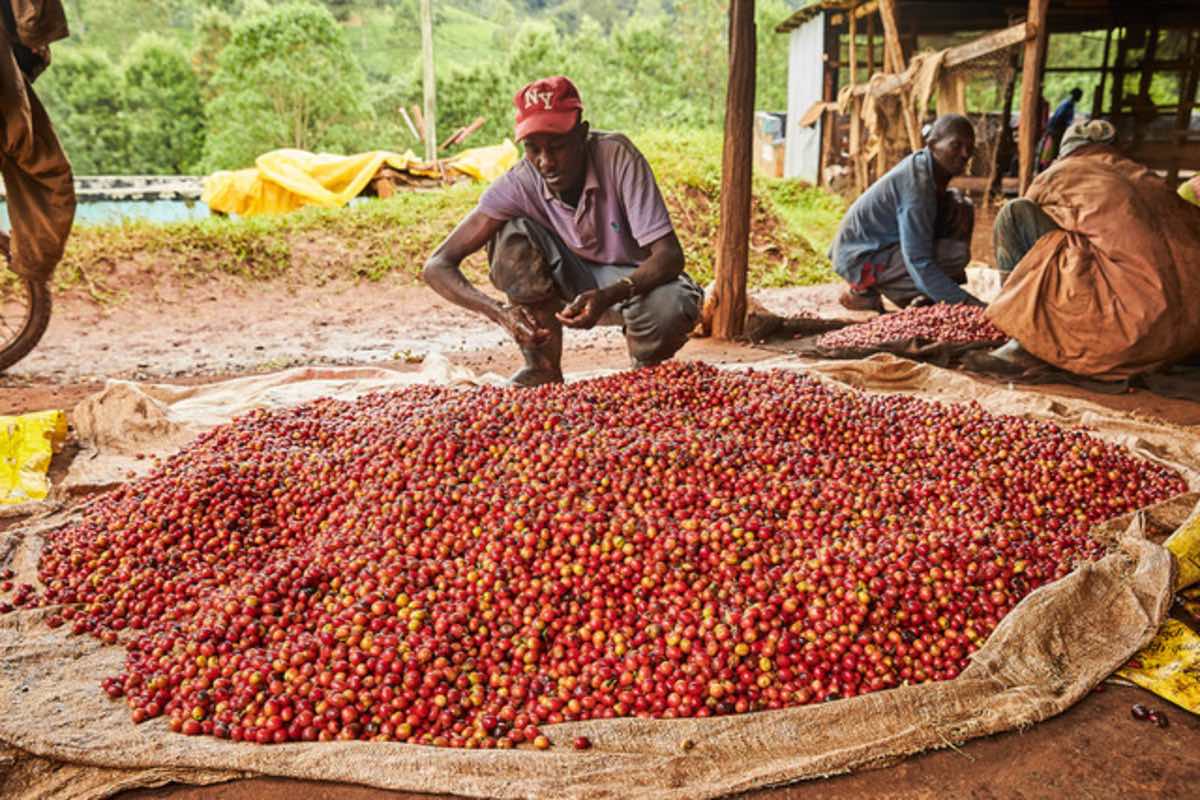
Transforming Kenya’s Coffee Sector
“coffee cartels,” – large companies which use multiple subsidiaries to manipulate prices.
Introduction : Government of Kenya: Transforming Kenya’s Coffee Sector and Breaking the Chains of Cartels.
The aroma of Kenyan coffee is unmistakable, but for years, beneath its rich flavor, lay a complex web of challenges in the coffee industry. Coffee cartels, delayed payments, and a lack of transparency have long plagued the sector
However, the Kenyan coffee sector, which has faced longstanding challenges, is on the cusp of a profound change, with comprehensive reforms that promise to breathe new life into the coffee industry.
In this blog post, we explore these reforms and their potential to dismantle the coffee cartels and uplift small-scale farmers.
The Role of Cooperatives
Cooperatives have always been central to the revival of Kenya’s agricultural sub-sectors, including tea, coffee, and dairy. They provide a platform for small-scale farmers to achieve economic independence and prosperity. The proposed reforms recognize the significance of cooperatives in creating a sustainable and equitable value chain.
Eliminating Marketing Agents to Coffee Brokers
One of the most significant resolutions of the reforms is the elimination of Marketing Agents who do not produce coffee. This move ensures that those involved in coffee production have a stake in selling what they grow.
Though Brokers the Government has licensed Brokers as it levels the playing field, making producers equal partners in the coffee value chain.
Currently there are fourteen (14) Brokers registered:-
1.Meru County
2.New KPCU
3.United Eeasten
4.Muranga County
5.Kipkelion
6.Elgon
7.KCCE
8.Kinya Coffee
9.Alliance Brokers
10.Bungoma Union
11.Kiambu Coffee
12.Embu Coffee
13.Baringo Kawa
14.Meru South
Increasing Coffee Production
The reforms have set an ambitious goal to increase coffee production from 50,000 metric tonnes per year to an astounding 200,000 metric tonnes within five years. This expansion is not just about quantity; it’s about empowering coffee producers to derive economic benefits from their efforts, resulting in higher-quality coffee for consumers.
Reviewing Existing Licenses
An essential part of the reform process is the review of existing licenses held by millers and marketing agents. The aim is to eliminate unfair licenses and consolidate the value chain by requiring different entities to specialize in specific roles. This move promotes transparency and efficiency.
Basically, GOK is looking at the Beneficial Owner of each entity. If you are licensed in one area you cannot subcumvent the system by having different local Directors locally, only to arrive at the same Beneficial Owner.
Decentralized Licensing
Licensing will undergo decentralization, with local governments, the Capital Markets Authority, and the Agriculture & Food Authority overseeing milling, brokerage, and coffee buying, respectively.
This decentralization ensures checks and balances along the value chain, safeguarding the interests of Kenyan coffee farmers. Each Agency shall licence each player making sure that the are all individually separate entities.
The Direct Settlement System (DDS)
The introduction of the Direct Settlement System (DDS) under the supervision of the Capital Markets Authority is a game-changer. It ensures transparent and efficient price discovery and, most importantly, faster settlement for farmers. Funds will be dispersed within 48 hours of sale, addressing the longstanding issue of delayed payments.
Empowering Coffee Cooperatives
Farmers will now have the option to skip cooperative unions, which have faced criticism for delayed payments. This move empowers farmers and reduces reliance on intermediaries.
Streamlining Cooperatives
To further strengthen the cooperative movement, reforms will streamline the governance of cooperative societies. This includes merging existing cooperatives that are not financially sustainable, ensuring their economic viability.
Conclusion
Reviving Kenya’s coffee sector is a massive undertaking, but these reforms are comprehensive and have the potential to address deep-rooted challenges.
The focus is not on personalities but on creating a transparent and equitable coffee value chain. While challenges lie ahead, the signs point to a determined effort to bring about meaningful change.
The success of these reforms hinges on their effective implementation. If done right, they stand to benefit producers, consumers, and the industry as a whole.
As Kenya’s Coffee Sector embarks on this transformative journey, the goal remains clear: to dismantle the chains of coffee cartels and pave the way for a brighter, more prosperous future for Kenyan coffee farmers and enthusiasts alike.





